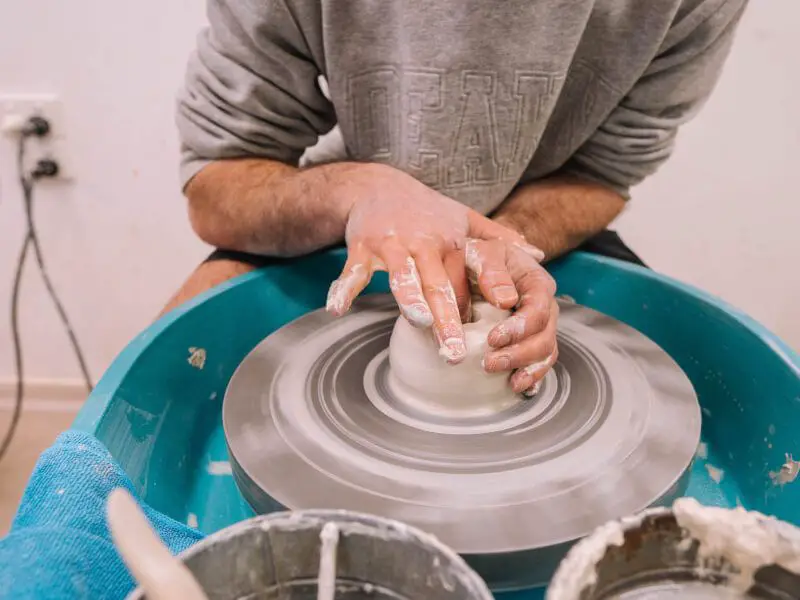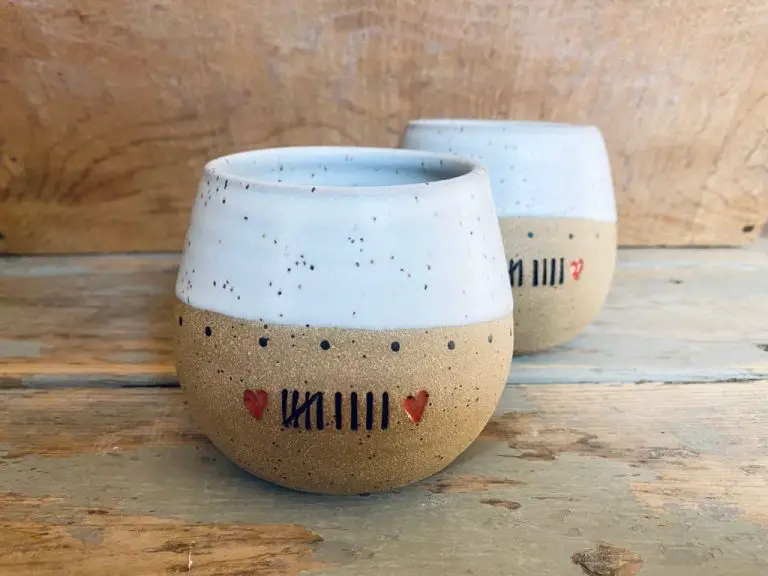Why Do People Take Pottery Classes?
Pottery classes have seen immense growth in popularity in recent years. More and more people are seeking out opportunities to get their hands dirty on the potter’s wheel. As we become increasingly reliant on technology in our daily lives, pottery offers a welcome chance to unplug and engage in creative, hands-on activities. The tactile, process-focused nature of working with clay is meditative, relaxing, and fulfilling. Pottery studios and adult education centers everywhere are reporting record enrollment in ceramics classes.
According to an article on LinkedIn “Mold and Shape: Unleash Your Creativity at Pottery Classes in Los Angeles”, pottery classes have been gaining immense popularity as people seek creative outlets and hands-on activities to counteract the predominance of technology.
Creative Expression
Pottery serves as a wonderful creative outlet and form of self-expression. Working with clay allows people to tap into their imagination and experiment with different techniques and forms. According to 7 Health Benefits of Pottery, pottery provides “tangible evidence of your creative capacity.” Shaping clay into a vessel or sculpture gives people a sense of achievement and pride in creating something unique with their own hands.
The process of pottery making allows for free-flowing creativity without judgement or need to conform to any rules. There is no right or wrong in pottery – it is about finding your own voice through the medium. Many people find working with clay to be therapeutic, as it offers a break from the structure and demands of daily life. Pottery enables complete immersion and focus on the present moment. Creating pottery can reveal hidden talents and new forms of self-expression that may not emerge through other art forms.
In summary, pottery serves as a fulfilling creative outlet for self-expression and exploration. The tactile nature of clay and versatility it allows taps into inventiveness and provides inner satisfaction. For many people, pottery offers an empowering way to unlock their creative potential.
Relaxation
Pottery is often cited as a calming, meditative activity that promotes relaxation and stress relief. The tactile process of working with clay is inherently soothing. Kneading, rolling, and smoothing clay can invoke a mindful, meditative state similar to yoga or deep breathing. As described in an article on mindfulness and pottery, “The reason why pottery is such a great form of meditation for combating stress in our fast-paced lives is the complete focus and concentration needed to center the clay on the wheel” (source). The intense focus required to sculpt pottery induces a flow state where outside worries fade away. Potters often describe achieving “zen” while absorbed in the pottery process. Throwing pots on a wheel requires full presence and awareness of one’s breath and body. The repetitive hand motions are intrinsically calming for many. Additionally, working with the textures and feeling of clay can be grounding. The malleability of the clay medium allows potters to freely sculpt relaxing designs and shapes. Overall, pottery provides an immersive, meditative hobby that counteracts daily stress.
Social Connection
Taking pottery classes can be a great way to meet new people and make friends (source). Pottery studios provide a relaxed social setting where you can chat and get to know fellow students while working on projects. Many pottery classes foster a sense of community, where students support and encourage each other’s creativity. According to one Reddit user, pottery classes offer opportunities to socialize and potentially meet people you can form lasting friendships with (source). As an adult, making new friends can be challenging. However, by joining a regular pottery class, you’re able to see the same people each week during the course. This makes it easier to open up, bond over shared interests, and develop real connections. Over time, pottery classmates can become close friends you look forward to seeing.
The communal nature of pottery studios also helps facilitate social interaction. Students often chat while working next to each other, give feedback on each other’s pieces, or collaborate on specialty workshops together. Rather than isolating yourself while practicing a solitary hobby, pottery provides a built-in social network. In many cases, friendships formed during pottery classes continue outside the studio as well. People arrange get-togethers, meet for coffee, or attend pottery events together. According to one studio, the welcoming atmosphere of pottery communities makes it easier to strengthen relationships and make lasting friendships as an adult (source).
Develop a New Skill
Many people take pottery classes because they enjoy the sense of accomplishment that comes from learning a new creative skill. Starting out as a beginner with no knowledge of working with clay, it can be incredibly rewarding to gain new techniques and improve over time. As one pottery teacher noted, “As your enthusiastic pottery teacher, I’m here to guide you through the stages of development, highlighting the persistence and dedication…” (source). With practice and guidance, students can experience the satisfaction of creating increasingly complex and beautiful pieces.

Some pottery studios design special programs around skill-building and development. For example, The Ceramic Hub in the UK hosts a “Pottery Challenge” where students commit to making 12 different pottery items over 12 weeks to expand their skills (source). As participants in these programs will attest, the feeling of personal growth and creativity that comes from gaining pottery skills makes the learning process inherently rewarding.
Gift Creation
One of the joys of taking pottery classes is having the ability to make personalized, handmade gifts for loved ones. The act of carefully crafting a piece of pottery by hand to give to someone shows care and affection. As this article discusses, handmade gifts have an emotional impact that mass-produced gifts simply cannot match. There is happiness in seeing the recipient’s face light up when receiving something made just for them.
Pottery lends itself well to making meaningful gifts. A hand-thrown vase or bowl crafted with someone in mind makes for a heartfelt present. Pieces can be customized with decorations, engravings, or personalized glazing colors and finishes. As noted in this post, the handmade imperfections and textural details of pottery gifts make them special. For pottery class students, being able to create lasting keepsakes for loved ones is a rewarding experience.
Art Appreciation
For many people, taking pottery classes can lead to a greater appreciation for art and craftsmanship. There is something special about working with clay and seeing a lump transform into a beautiful, functional object. As described in the article “Pottery Musings” on Medium, “It absolutely boggles my mind that ceramic arts have been under development for literally thousands of years.”
When you make pottery yourself, you gain insight into the creative process and all the skill and technique that goes into producing quality pieces. You start to notice the subtle details in glazing, shaping, coloring and firing. Your appreciation deepens for the long history of potters practicing their craft. As you gain experience, you can better recognize high quality ceramic art and understand the mastery involved.
Boards on Pinterest like “Art Appreciation // Ceramics” showcase the diverse beauty and artistry possible with clay work. Being able to create something yourself gives you a sense of wonder and admiration for what can be achieved. Pottery classes open up new ways of seeing and understanding art.
Functional Pieces
Many people enjoy making pottery that serves a practical purpose in daily life. Creating functional pieces like mugs, bowls, plates, vases, and more allows potters to produce items that will be used regularly and provide lasting satisfaction. Using handmade pottery for meals, displaying fresh flowers, or serving guests can remind creators of their skills every time the items are utilized (Artistic Functional Pottery – Everyday Use). There is pride and fulfillment in crafting beautiful yet functional pottery that enhances people’s homes and lives.
Potters take joy in the process of ideating and designing functional pieces that are both visually appealing and useful. The ability to conceive a form in the mind, manifest it with clay on the wheel or by handbuilding techniques, then finish and glaze it into a completed product provides a sense of accomplishment. Makers feel invested in items they crafted themselves from start to finish. Functional pottery also enables artists to share their creativity through gifts for family and friends. Seeing loved ones use handmade mugs, bowls, or platters on a regular basis is deeply gratifying for pottery students (750 Functional pottery ideas in 2024). Creating functional art makes pottery an interactive, collaborative process between maker and user.
Escape from Technology
In today’s modern world, many people spend hours each day staring at screens for work, entertainment, and communication. Constant connection to digital devices can cause stress, anxiety, distraction, and lack of presence.
Taking a pottery class provides a welcomed escape and chance to unplug. For the duration of the class, participants can leave their phones and devices behind. As their hands shape clay on the wheel or hand build a sculpture, their minds can focus on the sensory experience of crafting with an earthen material (Embracing a Digital Detox with Pottery Classes – Art Escape Pottery Retreat). Without the ping of notifications or urge to check social media feeds, one’s attention can become immersed in pottery as a creative outlet.
The studio environment cultivates presence and mindfulness, allowing the mind and body to recharge away from digital stimulation. Students report feeling grounded, clear-headed, and rejuvenated after spending a few hours unplugged in a pottery class. As an escape from technology, pottery provides a chance to reduce stress and gain perspective that carries over even after re-entering the digital world.
Conclusion
In conclusion, pottery classes provide a wide range of benefits for participants. From tapping into one’s creativity and finding a relaxing escape, to developing a practical skill and connecting with others, pottery offers meaningful experiences and enjoyment. The tactile, hands-on nature of working with clay allows people to express themselves, focus their minds, and produce functional works of art. No matter one’s age or background, pottery classes unlock satisfaction through shaping a lump of clay into something beautiful or useful. The therapeutic, social, and creative rewards make pottery an enriching hobby to explore.




